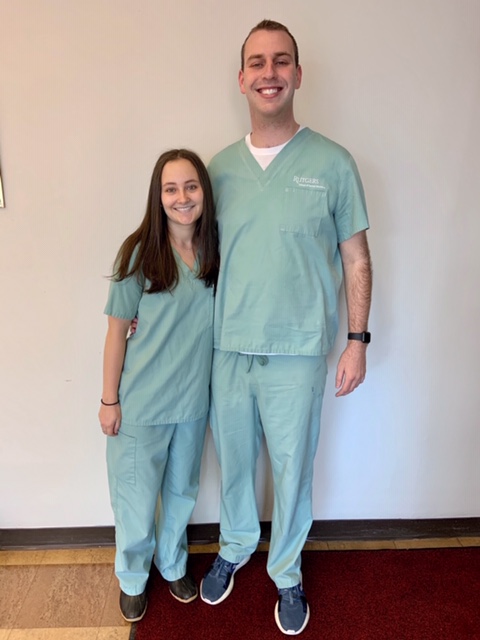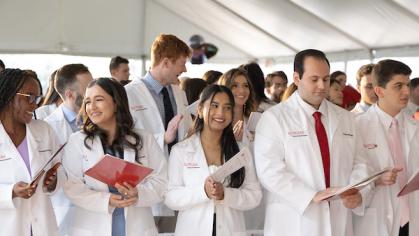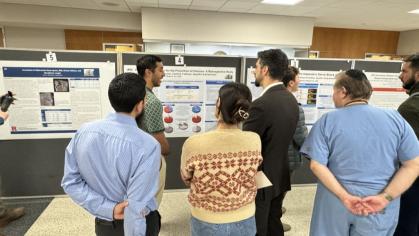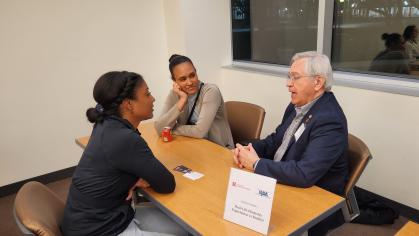Students Aim to Fill Need for Special Needs Dental Care
 Rebecca Portnoff and Justin Dinowitz
Rebecca Portnoff and Justin Dinowitz
Since she was a child, RSDM student Rebecca Portnoff has had friends with disabilities. Her mother, a speech pathologist, stressed the importance of forming these relationships, which spurred Portnoff’s interest in special needs dentistry.
Justin Dinowitz grew curious about the field after volunteering on a fishing trip for people who have special needs, including many with cognitive disabilities. He saw the pride they took in catching a fish and realized what a difference it made when they found a sense of accomplishment.
Both Portnoff and Dinowitz are recipients of a scholarship for fourth-year students who strive to learn more about treating special care patients. The scholarship is named for Drs. Justin Stone and Robert Kroll, who together built a thriving Essex County practice with a reputation for specializing in patients with disabilities. After they retired in 1993, RSDM invited them to establish a clinic devoted to patients with special needs.
In 2017, The Atlantic Philanthropies created a scholarship in their name. As awardees, both Dinowitz and Portnoff are part of the RSDM Special Care Honors Program, which includes collaborative work with students and faculty from the Rutgers School of Social Work and the School of Public Health. Both are researching the best ways for patients’ caretakers to manage their oral health.
Dinowitz, president of the Class of 2020, and Portnoff want to help fill the shortage of dentists who are adept at treating special needs patients. “I’ve seen a lot of information on how dentists need to be better trained,’’ he says. “It’s a daunting task but inspired me to take more of an interest. To treat special needs people with disabilities, you have to be very patient and have a lot of compassion,'' said Dinowitz.
As Portnoff learns more about special care dentistry, she’s been focusing on the differences between interacting with a friend who have special needs and treating a special needs patient. “You have to the control the situation rather than just hanging out,’’ she observed. “Sometimes, I’m going to ask them to do something they don’t want to do.’’
But, as with any patient, success often lies in respecting their individuality, she contends. “Everyone has different needs, so keeping an open mind and not assuming everyone is the same is important.’’



